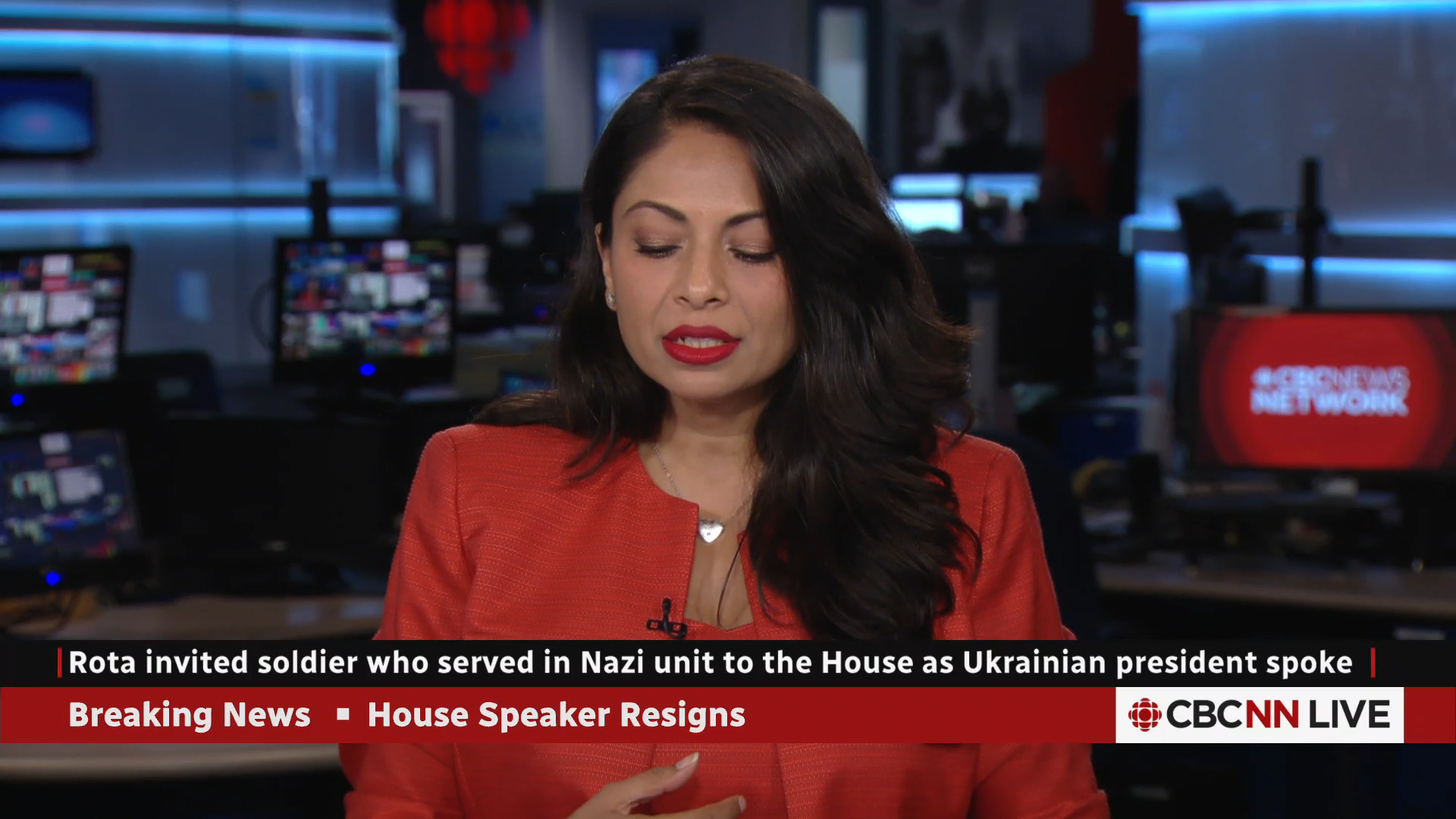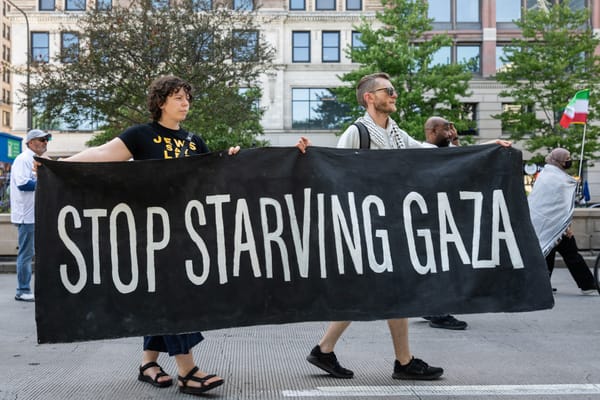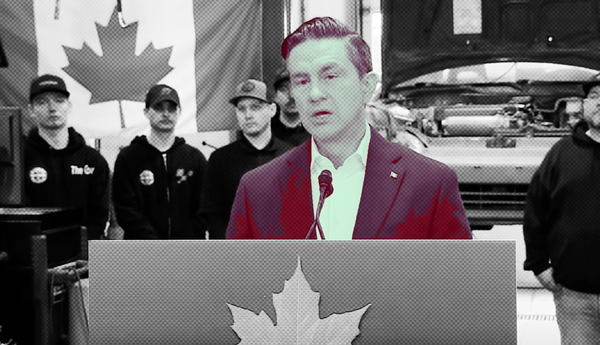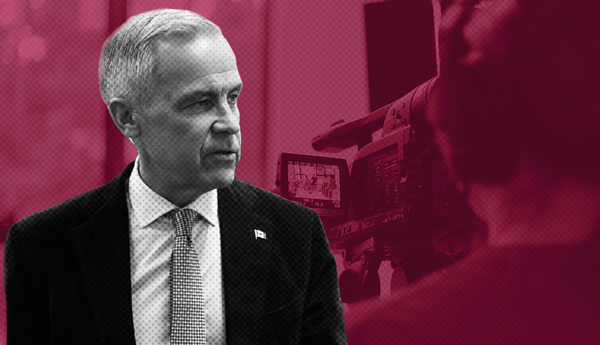Last week, Canada’s parliament gave two standing ovations to a Nazi.
Since then, Jewish groups within Canada have expressed outrage and demanded an explanation of how this happened. The Polish government has taken steps to have the Nazi, Yaroslav Hunka, be extradited and face justice. One prominent CBC journalist, meanwhile, has also expressed concern: concern that the Nazi’s feelings may have been hurt.
On September 26, CBC News anchor Natasha Fatah interviewed former Alberta deputy premier Thomas Lukaszuk. The pair discussed the standing ovations Hunka received, the resignation of Parliament’s speaker, Anthony Rota, and the broader political implications of the incident.
In the middle of the conversation, which I came across on Twitter thanks to a tweet from former CBC staff journalist Sarah Rieger, Fatah posed a disturbing question to Lukaszuk: “This horrible series of events have happened. Rota has lost his job, the government is again fractured on an issue and in the meantime, the Hunka family, this man in question, is now in international spotlight. ‘What was his role?’ And this is a 98-year-old man who would likely not have wanted this type of attention. So, what consideration needs to be given, because the spotlight can be so cruel? How do we manage to make sure guests that are invited are also protected?”
From @CBCNews yesterday: “The Hunka family, this man, is now in the international spotlight … the spotlight can be so cruel. How can we make sure that guests ... are also protected?"
— Sarah Rieger (@sarahcrgr) September 27, 2023
This is talking about a man who volunteered at age 18 to join the Nazi Waffen-SS. pic.twitter.com/Cs8ClrdLze
Hunka was a member of the SS 14th Waffen Grenadier Division, a group made up of recruits who swore an oath of loyalty to Adolf Hitler and were directed by German commanders. Hunka, along with thousands of other Nazis and Nazi-collaborators, managed to escape justice and find a nice life for themselves in Canada.
Being exposed to international criticism this late in his life — especially given that it only came as a result of attention he sought and thoroughly enjoyed until the public realized who he was — is the absolute bare minimum of a consequence someone like Hunka should face. It is not cruel. Nothing would be too cruel of a punishment for the scumbags that willingly joined the Nazis, betraying the millions of brave people in their country who fought against them.
The fact that Fatah, who enjoys a major national platform, would ask this sort of question is appalling. It’s not necessarily a surprise, given how much rehabilitation and whitewashing of Nazis journalists here have done since Russia invaded Ukraine, but it’s truly reprehensible.

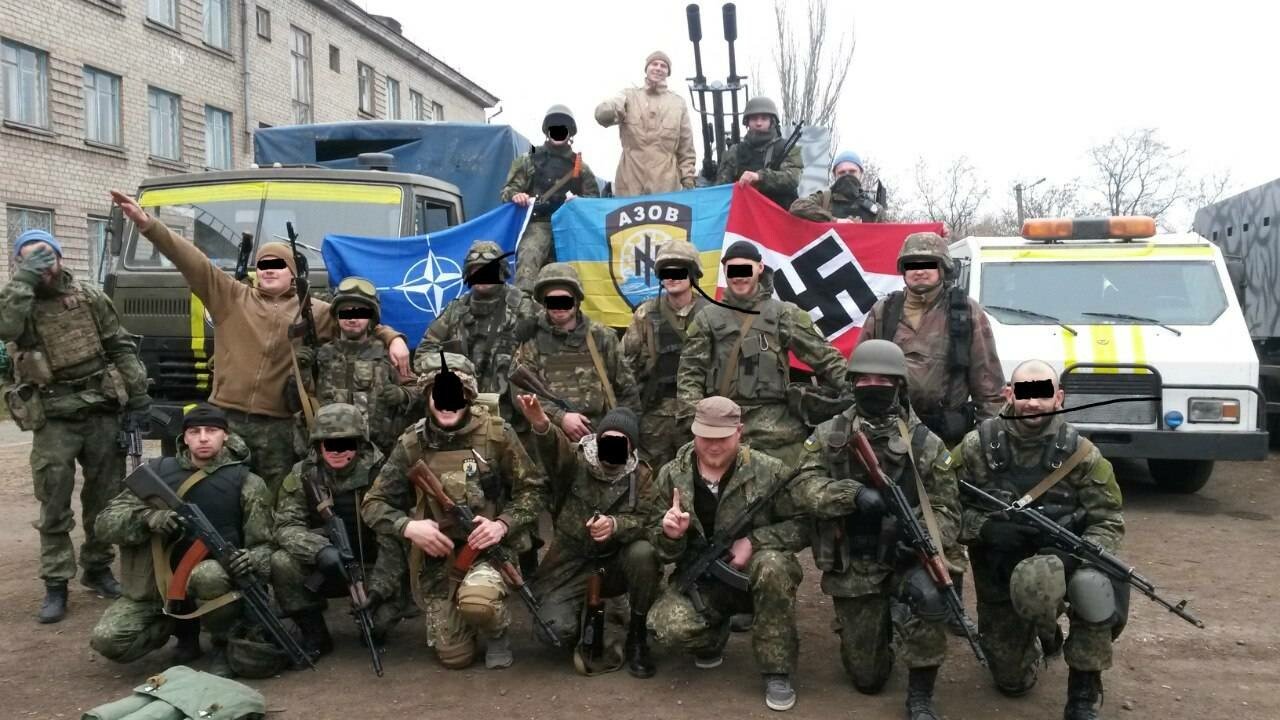
Unfortunately, Fatah isn’t the only journalist in Canada who has expressed sympathy for Hunka or some understanding of his choice to join the SS.
In a September 27 National Post column, Colby Cosh wrote, “On Monday, after I filed a column on Friday’s strange events in the House of Commons, I found myself having a strange sympathy for the 98-year-old ex-Nazi at the centre of the whole mess.”
The reason? “The little old man in the wheelchair will have to live his last days knowing that, after a youth spent fighting for Ukraine and a long life praying for it, he has betrayed the land of his birth badly, in wartime, or been enticed into betraying it.”
Of course, Hunka was not fighting for Ukraine — he was collaborating with the Nazi occupier to, among other things, fight the Red Army, which millions of Ukrainians served in.
Cosh adds: “In the absence of any bill of particulars, what I see is an old man who was cruelly let down at the end of his days by naïve descendants and a halfwit glory-seeking politician.”
Meanwhile, Heather Mallick at the Toronto Star, not content with letting the opportunity to publish a bad and rambling take go by, wrote: “A Ukrainian caught between Hitler and Stalin made a fatal choice. We can hate Hunka for that now. I do. But would every Canadian MP have made immaculate choices inside Stalin’s ‘Bloodlands’ in 1943? Of course you and I would have been heroic, joined the White Rose movement, been executed for our troubles. But everyone?”
Again, the choice to fight for the Red Army was one that the vast majority — millions — of Ukrainians made in this time period. Hunka was part of a small minority. This wasn’t because of any sort of bravery on his part that those in the White Rose movement in Nazi Germany displayed, but rather because of the sort of hatred those who crushed that movement were motivated by.
The Canadian government has embarrassed itself. And with this story now all over international news, Canada’s press is embarrassing itself as well. A true reckoning with the soft-on-Nazis approach that has become increasingly common in media and politics is long overdue.


